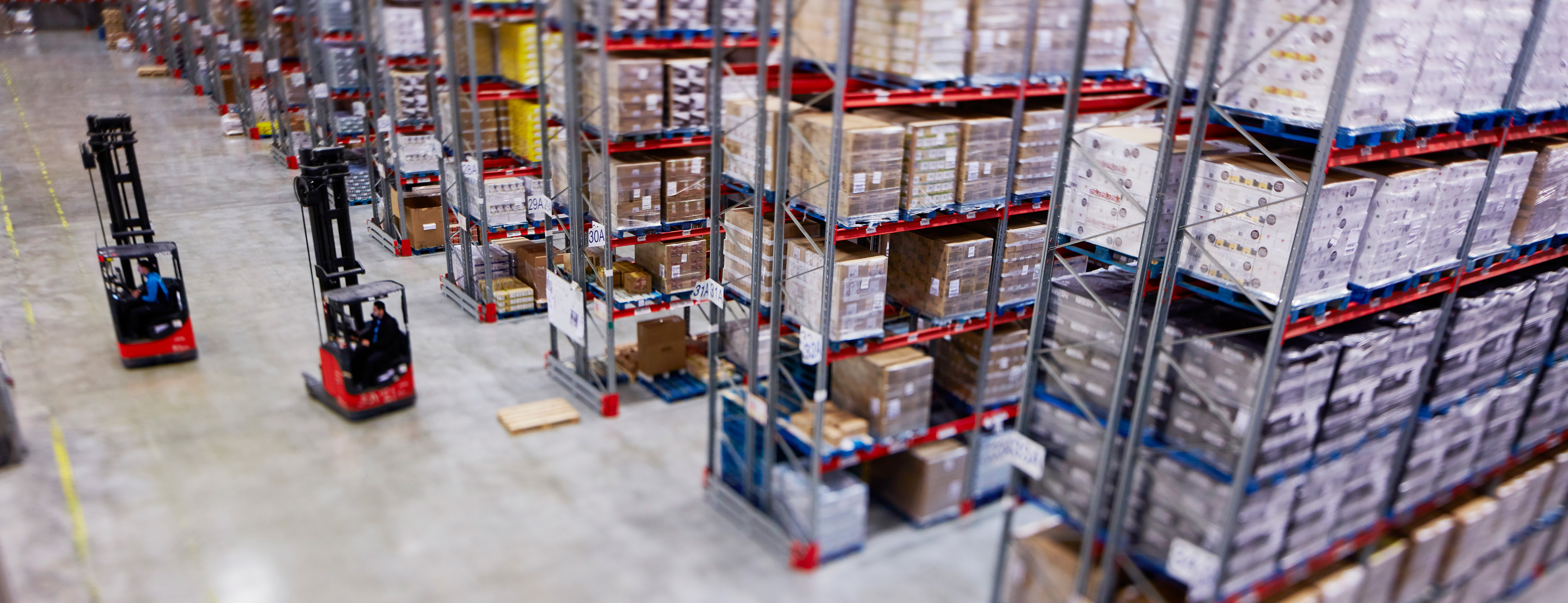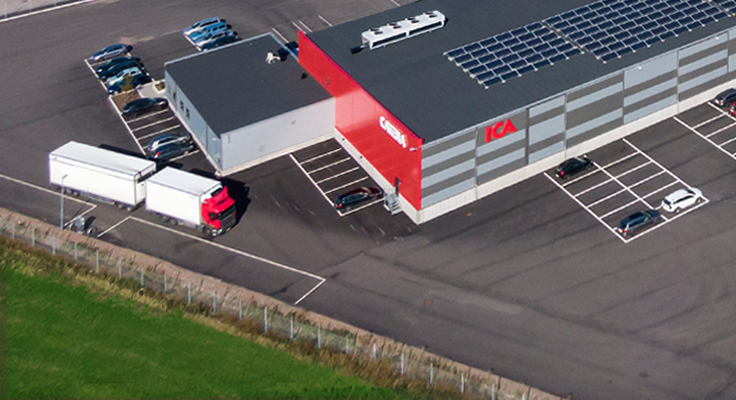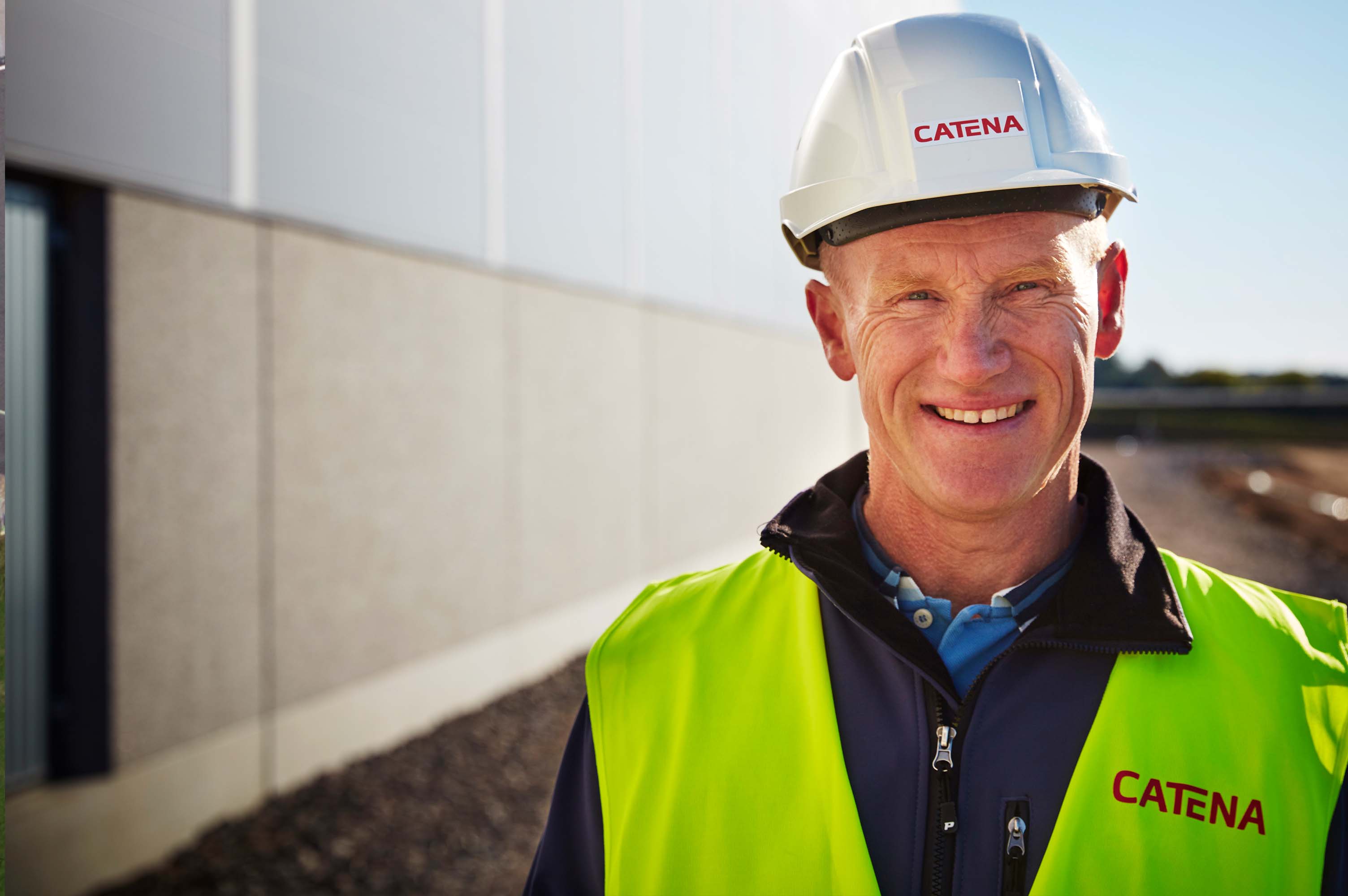
Investment story

Since Catena chose to focus on logistics properties in 2013, the Company has generated shareholder value with a steady return on equity. In the long-term, Catena's dividends to shareholders should amount to 50 percent of profit from property management after standard tax. The share is traded on the Nasdaq Stockholm exchange, Large Cap.
Five factors that make Catena the market leader

A focused business model
With a focus on strategically located logistics properties, Catena has established valuable specialist expertise and experience – together with long-term ownership, ensuring that Catena’s strong market position affords the Company’s customers a proactive partner that assumes responsibility over time.

A market-leading land bank
Historically, Catena has successfully acquired undeveloped land with favourable future opportunities for establishing logistics properties. This means that Catena now has a great potential land bank in strategic logistics locations.

Long-term customer relationships
Strong cash flow is safeguarded through long-term relationships with a wide range of customers, several of whom are among the largest players in the market and fill many societal functions. This provides Catena with a safe and stable foundation.

Focus on sustainability enhances attractiveness
The ability to offer smart space and optimise flows with minimum impact is crucial. In the energy transition in which climate change contributes to greater vulnerability and makes efficient commerce essential, and circular business models generate entirely new logistics needs.

Sustainable and efficient project development
Development and refinement are important aspects of Catena’s business model and generate conditions for growth in the value of the existing portfolio or through new-build projects. With a focus on sustainable and efficient logistics properties connected to key logistics hubs, economies of scale are derived.

Catena in numbers
-
136 Properties -
96.6% Economic occupancy rate -
58% Environmentally certified surface, % of total area
Our properties are adapted for tomorrow’s product flows
Digitisation
Accelerating digitisation is driving growth in e-commerce. The technology enables fast, individualised and more climate-intelligent deliveries, generating considerable need for new logistics spaces.
Automation and robotics
Technical innovations contribute to more intelligent and more efficient logistics and trade. The need for logistics space is growing and in pace with changes in development, the design requirements for logistics properties also change.
Climate realignment
Climate change is driving the need for functioning trade and is also contributing to increased vulnerability. With insights regarding impacts on the climate and the environment, requirements for transparency are also increasing. Logistics, and the capacity to optimise flows with minimal impact on the total extraction of resources, play a central role.
Circular economy
Shifting linear flows over to circular models presupposes logistics capable of meeting the needs that arise. Return flows can, for example, gain a new and decisive importance in society. New types of spaces are required to handle the circular flow.
Demography
The urbanisation places demands on new types of logistics solutions close to customers and a larger elderly population increases the need for individualised deliveries.
Global market
An integrated world market with complex, global flows means that logistics chains are becoming increasingly critical for the society. To reduce the risk of supply chain disruptions, demand is increasing for more sustainable and functional logistics properties in appropriate locations.
Contact
Catena's work in investor relations aims to be correct and transparent thereby maintaining and increasing the knowledge of Catena among all stakeholders, and through this contributing to a correct valuation of the company.
If you have further questions, please do not hesitate to contact us.








